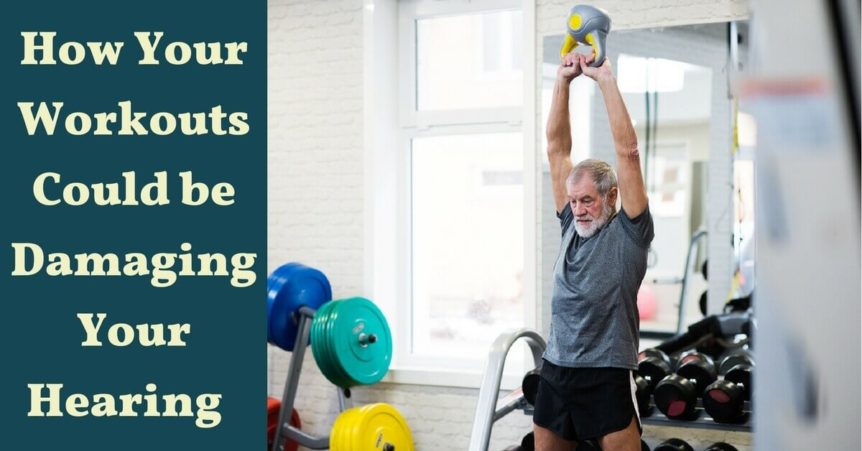Reduced risk of heart disease, improved blood pressure, stronger bones, healthier aging, heightened immunity, better stress-management, the warm-fuzzy endorphin rush…the benefits of exercise are too numerous to list here. Exercise has even been shown to help maintain healthy hearing, as it improves blood flow to the ears and overall cardiovascular function. But if you currently have an exercise routine or are planning to start exercising more, you should be aware that certain kinds of exercise can actually be damaging to the ears. Read on to learn how to keep your hearing safe while getting in shape.
CrossFit & PLFs
A fitness program which boasts impressive results and which is rapidly growing in popularity around the country, CrossFit is based on high-intensity workouts that push people to their limits. The dynamic workouts combine the best aspects of gymnastics, weightlifting, running, rowing and more, and are designed to help people reach their peak physical fitness in a short time. But some CrossFit devotees are experiencing an unwanted side effect of this intense training program: hearing loss. Here are two practices to avoid when taking part in CrossFit classes (or other high-intensity workout regimes):
1) Straining – Forcing oneself to make a strenuous or unusually great effort, straining causes pressure within the brain (intracranial pressure) as well as within the ears.
2) Breath holding – Some use this as a boost when lifting weights as it solidifies the core, but holding the breath can lead to even more pressure in the inner ear.
So how and when does this pressure in the inner ear lead to hearing changes? Sometimes, as a result of intense straining and breath holding during exercise, a perilymphatic fistula occurs. Also known as a PLF, this is a small tear in the membrane that divides the middle and inner ear. PLF’s happen unexpectedly and aren’t always detected right away. Hearing problems, vertigo, and sensitivity to loud noises can begin to occur later, during subsequent workouts, as fluid from the inner ear leaks through the small tear and builds up in the middle ear.
Other types of exercise to be careful with…
In any exercise routine which encourages people to push themselves to the limits of their strength, participants should be mindful of their hearing and aware that straining and breath holding carry risks of hearing loss. Running or even intense yoga poses have the potential to cause changes in hearing.
Working out in gyms increases the risk of developing noise-related hearing loss or tinnitus (a ringing in the ears), as crashing weights and loud music can cause permanent damage to the hair cells of the inner ear. The sound of weights crashing down has the same potential to harm the ears as a shotgun or airbag deploying, says Rachel Raphael, M.A., CCC-A, an audiologist with Mercy Medical Center in Baltimore and a certified group fitness instructor.
Tips to protect your hearing during exercise:
1) If the weight you’re lifting is causing you to strain, reduce the level of weight. This will result in less intracranial pressure, lowering the risk of developing a PLF.
2) If you experience hearing problems during or after your exercise routine, change your routine to find the right level of intensity (one at which you are no longer experiencing hearing changes).
3) Keep your ears safe at the gym. You can protect your ears from loud music and crashing weights by wearing earplugs; if you listen to music with headphones, make sure the volume stays at a reasonable level.
4) As you age, do less straining during exercise, especially in the form of heavy lifting.
5) Remember that holding your breath causes pressure to build in the ears; avoid holding your breath while lifting weights.
6) If you are experiencing changes in your hearing, avoid sports which can result in blows to the head, such as boxing or wrestling. Opt for low-impact workouts instead.
7) Avoid letting the weights bang down when weight lifting. The noise of crashing weights can reach a level as high as 140 decibels, which is enough to cause sudden hearing loss.
8) If you experience symptoms such as fullness in the ears, dizziness, sensitivity to loud noises or muffled hearing after working out, don’t ignore them or assume they will go away on their own.
Ensure your best hearing health by scheduling an annual hearing test. Contact us at Neighborhood Hearing Aid Centers today.

